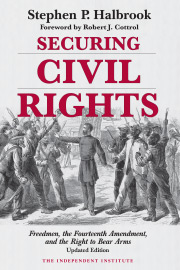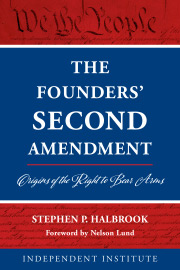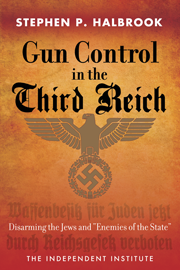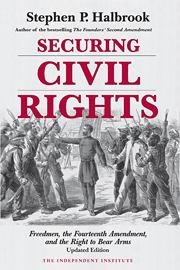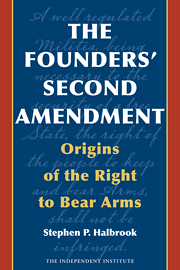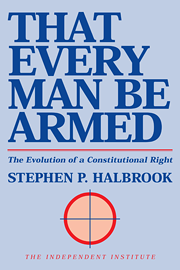On Thursday, the U.S. Supreme Court delivered a landmark decision protecting constitutional rights by overturning the District of Columbia’s ban on individuals owning handguns. The consequences of that decision will be felt throughout the nation.
Because of the high court’s decision to affirm the Second Amendment as an individual right, local, state and federal governments will have a much harder time infringing on citizens’ rights to protect themselves and their families. This is the biggest victory for individual rights in decades.
We assisted in this effort by filing a congressional “friend of the court” brief in the case of D.C. v. Heller in favor of the respondent, Dick Heller. That brief, signed by 55 senators, 250 members of the House of Representatives and the vice president, proved that a majority in Congress understood the Second Amendment to be a protected individual right. Never before had so many members of Congress signed such a brief to the Supreme Court.
In 1976, the D.C. City Council passed the nation’s toughest gun control law, banning handguns completely and requiring rifles and shotguns to be registered, stored unloaded and locked, or disassembled.
The D.C. murder rate was declining before this law; in the next 15 years it jumped 200 percent. Earlier this month, The Washington Post ran an editorial saying the “District of Columbia ended last year with more people killed than in the previous year,” and the number of murders so far this year is higher, yet.
Besides being ineffective, the ban was simply incomprehensible. Under D.C. law, business owners had the right to use a firearm to protect their store cash registers, but they could not use the same firearm to protect themselves and their families in their homes.
The Founding Fathers did not put the right to keep and bear arms in the Constitution by accident. In 1775, the American Revolution began when ordinary citizens decided to fight back against foreign tyranny. Many in George Washington’s regiments used their own guns.
The Second Amendment says, “A well regulated militia, being necessary to the security of a free state, the right of the people to keep and bear arms shall not be infringed.” It is now clear our Founders did not use the term “militia” to suggest gun rights could be used only in an organized army, despite gun control advocates having made that argument for years.
If the Framers’ purpose had been what is known as a “collective right,” they would have been satisfied with Article I, Section 8 of the Constitution, which gives Congress the power to “call forth the militia to execute the laws of the union, suppress insurrection and repel invasions.”
Instead, to ensure that gun ownership was recognized as an individual right, they included it in the Bill of Rights, a compilation of such other individual rights as freedom of speech, freedom of religion and a fair trial. The location of these words provides strong evidence for the Founders’ vision.
Thomas Jefferson once wrote, “The natural progress of things is for liberty to yield and government to gain ground.” In debate on the Bill of Rights, James Madison wanted the American people to have the right to be armed in order to prevent the kind of tyranny that dominated the rest of the world, especially Europe.
In the last century, totalitarian regimes such as the Soviet Union and Nazi Germany successfully confiscated weapons from their citizens in order to force them to submit more easily. Today, dictators in Burma and Cuba confiscate privately owned guns, and their people continue to suffer.
The Second Amendment ensures that Americans have the ability to secure their rights and defend them from government suppression, if necessary. It is that right that a government of the people, by the people and for the people must never extinguish.
In the case of D.C. v. Heller, the Supreme Court affirmed Second Amendment rights for the first time in almost seven decades. This is a welcome outcome for those who love liberty in our great nation. Because of the high court’s decision on Washington, D.C., every American will have this precious right.



